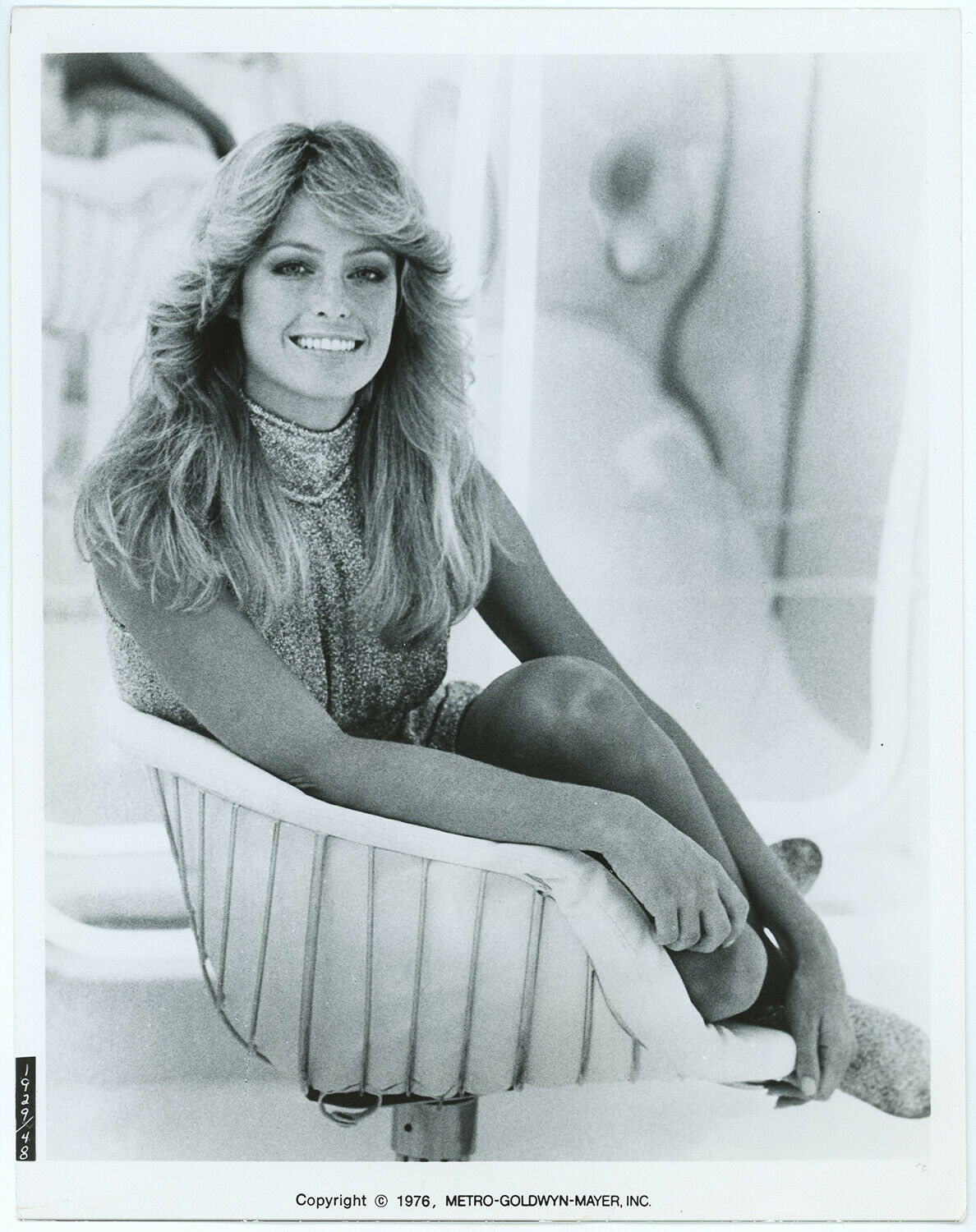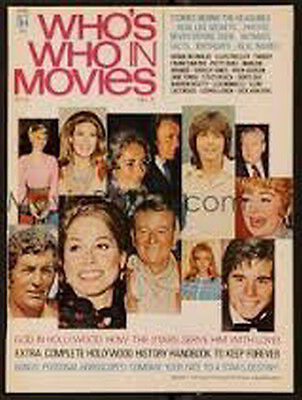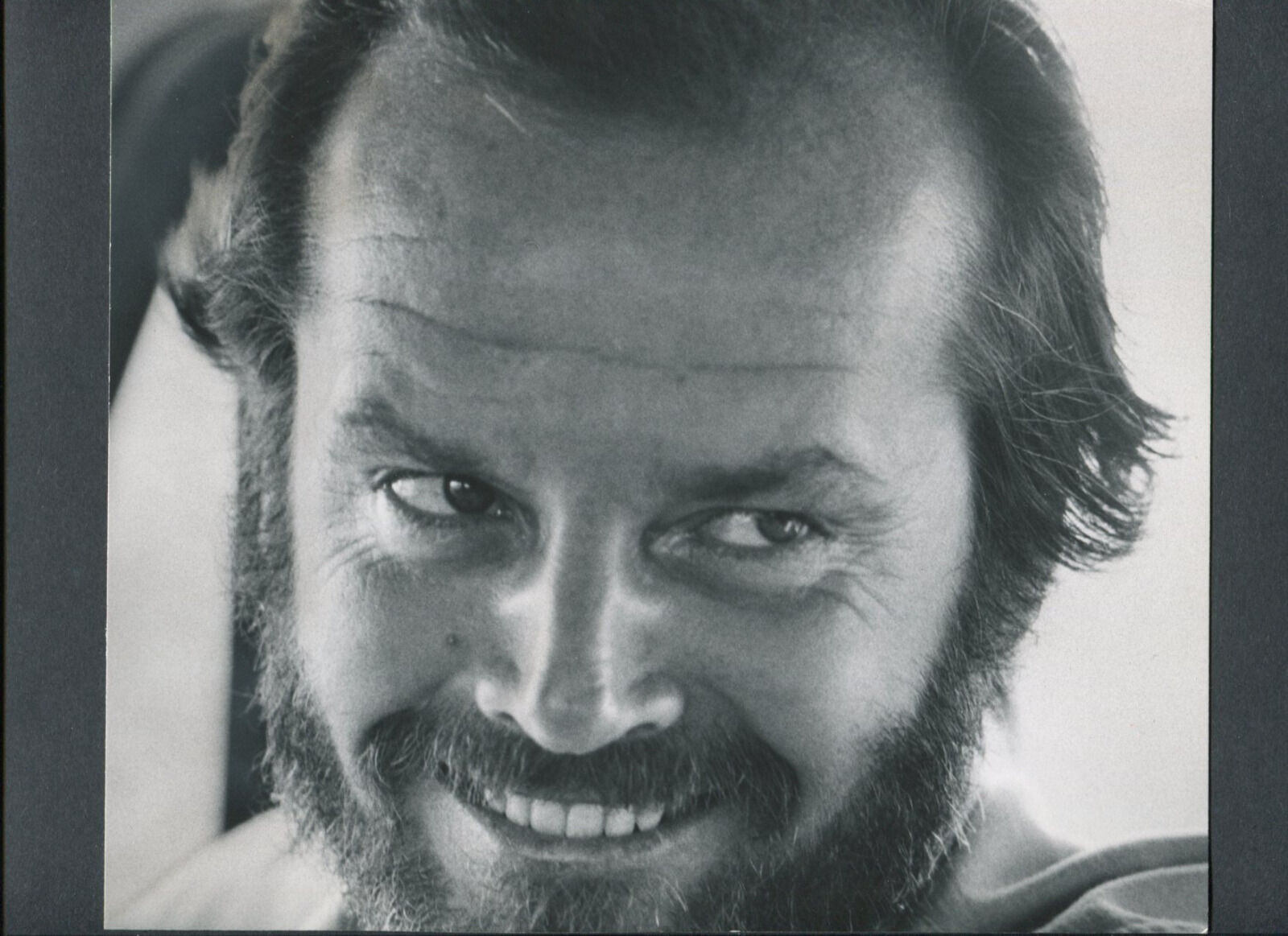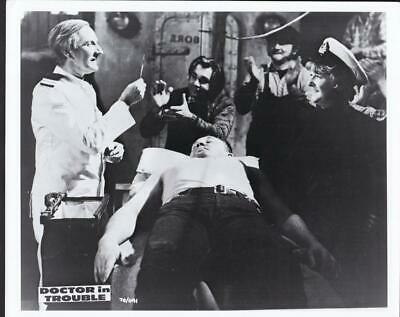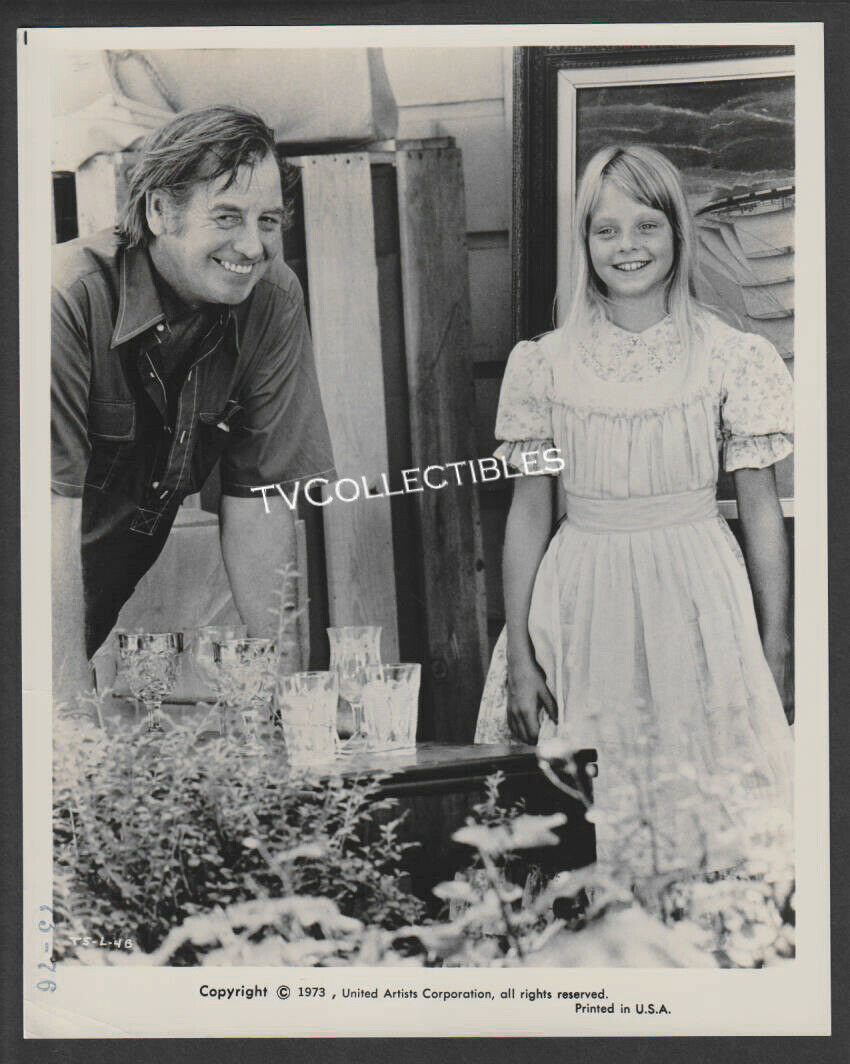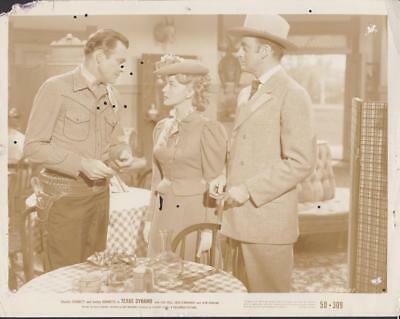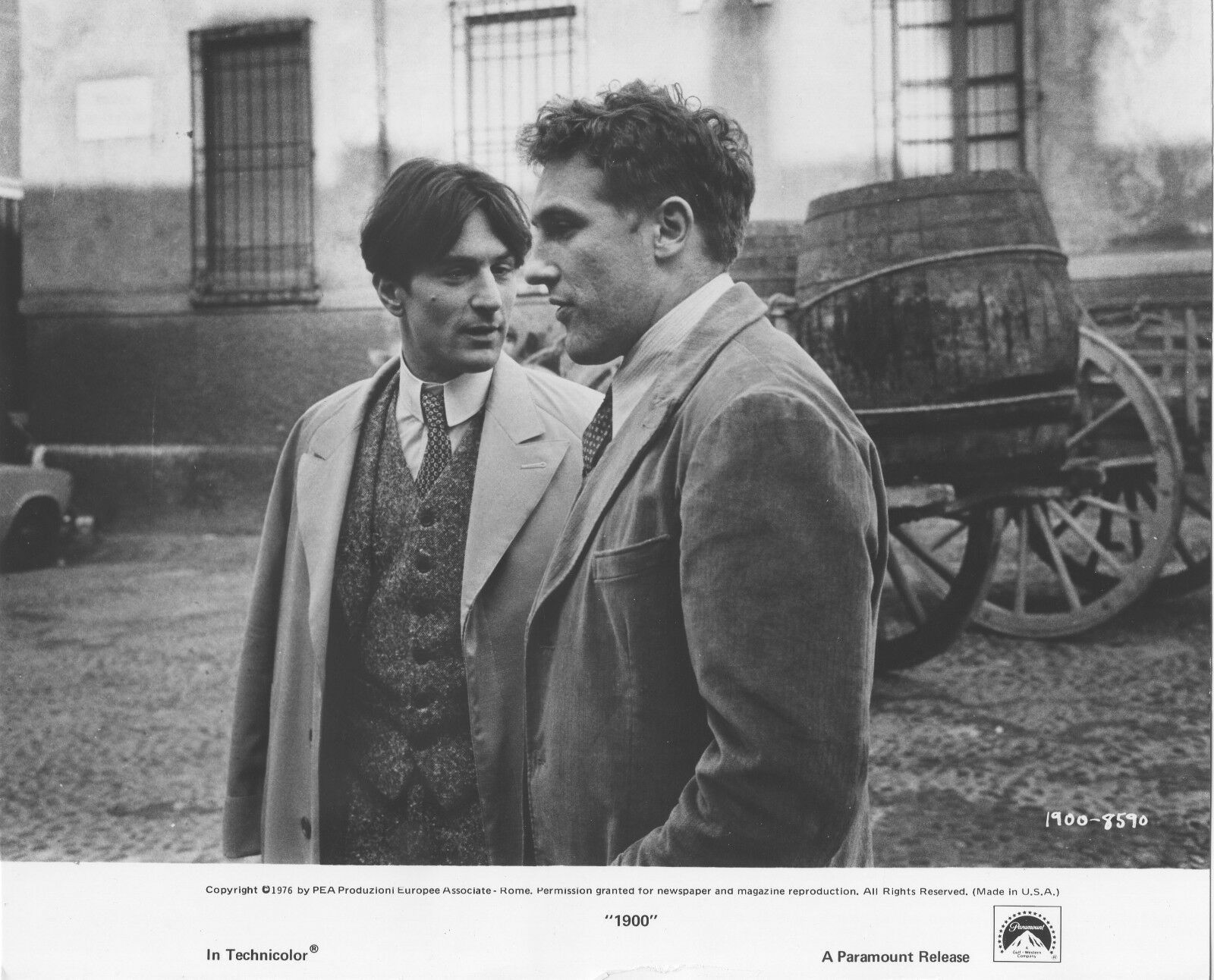-40%
Blonde Bombshell Farrah Fawcett Original 1976 Logan's Run Glamour Photograph
$ 4.48
- Description
- Size Guide
Description
ITEM:This is a vintage and original pin-up glamour photograph of Farrah Fawcett. A gorgeous view of the beauty with a bright smile and her classic feathered 'do. This was from the publicity campaign for Metro-Goldwyn-Mayer's sci-fi film "Logan's Run" (1976).
An actress best known for her role as Jill Monroe on the TV series "Charlie’s Angels" (1976), Fawcett rocketed to pin-up status when a poster of the red bathing suit-clad actress sold 12 million copies. Her popularity also extended to females as evidenced in salons throughout America that emulated her iconic feathered hairstyle. After "Charlie’s Angels", Fawcett starred in multiple film and TV movies, garnering three Emmy nominations.
Photograph measures 8" x 10" on a glossy paper stock.
Guaranteed to be 100% vintage and original from Grapefruit Moon Gallery.
More about Farrah Fawcett:
One of the most iconic entertainment figures of the 1970s, Farrah Fawcett was an American actress who burst onto the pop culture scene as the bathing suit-clad subject of a best-selling poster. Her image - impossibly fresh-faced, toothsome and glowing with confidence and casual sex appeal - boosted her fledgling acting career and was almost as critical to her superstardom as her turn as one of a trio of "three little girls who went to the police academy " in Aaron Spelling's action series "Charlie's Angels" (ABC, 1976-1981). At the peak of her fame and after only one season, she departed the series in 1977 with the intention of making a name in feature films, but the results were not always what she had hoped for. Determined to prove the naysayers wrong in the early 1980s, she began surprising fans and critics alike with a string of intense and unglamorous roles in plays, independent features and television movies like "The Burning Bed" (1984), "Extremities" (1985), and "Small Sacrifices" (1989). In 2006 and 2007, Fawcett generated international headlines again with the revelation that she was undergoing treatment for cancer - the third of the three original Angels to confront this disease. Her long battle, poignantly documented in the public's last glimpse of the icon, "Farrah's Story" (NBC, 2009), came to an end on June 25, 2009 when Fawcett, 62, died in Los Angeles with family and friends by her bedside.
Born Ferrah Leni Fawcett in Corpus Christi, TX on Feb. 2, 1947, she was the daughter of oil field contractor, James Fawcett, and his wife, Pauline. Photogenic and charismatic at an early age, she was also a natural athlete, but discovered her true passion in acting through her high school's arts program. Though she graduated from the University of Texas with a degree in microbiology, she held fast to her desire to become an actress, and got the push she needed to move to Los Angeles after a campus beauty contest introduced her to a Hollywood agent. Once in California, she began landing work in television commercials and episodic series which capitalized on her natural beauty. In 1968, she met and began dating actor Lee Majors, who used his influence as a popular television star to improve her own acting career. However, her first major film role was in the disastrous "Myra Breckinridge" (1970), which starred Raquel Welch as a post-operative transsexual, a decrepit Mae West, and critic Rex Reed as Welch's male alter ego. The film was assailed by critics and audiences alike for its extreme bad taste, and its X rating gave rise to subsequent rumors that Fawcett had begun her career in adult films.
Still an unknown, Fawcett mercifully survived the fallout of "Myra" and continued to log numerous appearances in made-for-TV features and television shows, including a recurring role as private eye David Janssen's attractive neighbor on "Harry-O" (ABC, 1974-76). She married Majors in 1973 and billed herself as Farrah Fawcett-Majors for her subsequent projects. His own career was in overdrive, thanks to his new series, "The Six Million Dollar Man" (ABC, 1974-1978), while Fawcett continued to circle the outer limits of stardom. All of that changed after she was hired to pose for a poster by Pro Arts, Inc., a small independent poster company. The company wanted her to appear in a bikini, but Fawcett balked and wore instead a one-piece red swimsuit. The poster, captured by freelance photographer Bruce McBroom at Fawcett's Bel-Air home with Majors, would provide one half of the pop culture tidal wave that would sweep Fawcett to international recognition. One big reason: nipples protruding quite prominently from the red suit - something not seen on most girly posters of the time.
In the same year that Fawcett posed for the Pro Arts poster, she was tapped by Aaron Spelling to join Kate Jackson and Jaclyn Smith in Aaron Spelling's adventure-drama "Charlie's Angels." A flimsily plotted show about a trio of attractive police detectives who solve cases for an unseen boss (voiced by John Forsythe), its main attraction was its female stars, who were frequently photographed in revealing outfits or in male fantasy situations - i.e. roller derby queens, nurses, models, etc. As Jill Munr , the sole blonde of the three, Fawcett drew the most immediate attention, and her glamorous looks, ditzy delivery and winning smile were played up by the producers. As the "jiggle TV" show began to build its viewership, Fawcett's Pro Arts poster was released and became one of the most purchased and displayed images of the 1970s - selling an alleged 8 million copies. Fawcett's image soon became one of the most desired and imitated in popular culture - right up there with Betty Grable's over-the-shoulder WWII pin-up. And it was not just the men who worshipped their new goddess. Fawcett's full and flowing hairstyle - courtesy of Wella Balsam shampoo, according to her ad campaign - was imitated by women across the nation en masse, and along with her smile - courtesy of her Ultra-Brite toothpaste ad campaign - was the subject of numerous tributes, spoofs, and tie-in products. There was simply no bigger female star on the planet during those two heady years of 1976 and 1977.
However, her newfound fame did not sit well with Majors, who had envisioned a more traditional married life with Fawcett, complete with dinner on the table when he returned home from his "Bionic" set and pushed for his wife to leave the show. Tensions were also beginning to develop between Fawcett and the show's producers over her paycheck (she was receiving ,000 an episode) and the quality of the scripts. Convinced that she could succeed without the program, she left "Charlie's Angels" in 1977 after only one season - usually a big mistake for any TV actor - with the intention of making a go in feature films. Her decision to break her contract immediately generated a series of lawsuits from the producers, which ended when she agreed to make random return appearances over the next two seasons, checking in on how her little sister Kris Munr (her replacement, Cheryl Ladd) was being taken care of by her fellow detective pals. The fact that Ladd became almost as big a star and the resident sexpot - proving Fawcett was replaceable - could not have sat well with actress, who was now on her own, sans the Aaron Spelling safety net.
Her first film project after the success of "Charlie's Angels" was "Logan's Run" (1976), a candy-colored science fiction extravaganza from MGM that later developed an enduring cult audience. Her role in the film was minor at best, and after departing "Angels," she attempted to mint herself as a leading lady. Her efforts in this pursuit were misfires: "Somebody Killed Her Husband" (1979) was a glum mystery-romance with Jeff Bridges, while "Sunburn" (1979) found her playing wife to klutzy insurance investigator Charles Grodin as part of a scam. Both features were mercilessly dispatched by critics, who frequently singled out Fawcett's performance as one of the films' low points.
Fawcett's movie career wasn't the only aspect of her life in sharp decline at the end of the 1970s. She separated from Majors in 1979 and finalized their divorce some three years later. She attempted to halt the dissipation of her film career by appearing topless in the science fiction thriller "Saturn 3" (1980), but the movie - in which she appeared opposite Kirk Douglas as astronauts threatened by a madman (a dubbed Harvey Keitel) and his giant robot - was a troubled production and a box office failure. She then signed on for a thankless role in the Burt Reynolds comedy "The Cannonball Run" (1981), which marked her sole movie hit of the period, but not due to her efforts. Meanwhile, Fawcett became involved with the volatile actor Ryan O'Neal, a friend of Majors who was also on the cusp of a major career wane after enjoying a heady run as leading man in several classic films of the 1960s and 1970s. The duo became inseparable for many years, and eventually produced a son, Redmond, in 1985 - but never married; a somewhat shocking lifestyle choice at that time.
Faced with the fact that few quality motion pictures, if any, were coming her way, Fawcett returned to television with a string of character-driven parts in TV movies. She received solid notices for her turn as the murdered socialite wife of a plastic surgeon in "Murder in Texas" (1981), and earned rave reviews for her physically and emotionally strenuous performance in the play "Extremities" (1982), which cast her as a woman who turns the tables on a malevolent attacker. The true turning point in Fawcett's career, however - phase II, really - came two years later when she was cast as a battered wife who murders her abusive husband in the TV-movie "The Burning Bed" (1984). Fawcett's commitment to the real-life story and her unglamorous appearance wowed critics - to say nothing of showing off considerable acting chops most critics had long assumed she never possessed. The telefilm was so ground-breaking for Fawcett, it brought her Emmy and Golden Globe nominations. It also allowed her to settle into a series of high-profile dramas on television and film, including the feature film version of "Extremities" (1986), "Nazi Hunter: The Beate Klarsfield Story" (1986), which cast her as the real-life Dutch prosecutor who brought Klaus Barbie to trial; and "Poor Little Rich Girl" (1987), a biopic of heiress Barbara Hutton. The richness of her performances in these projects and others yielded numerous Golden Globe nominations, but more importantly, an almost apologetic about-face by critics regarding her talents.
Fawcett's winning streak ended on a high note in 1989 with "Small Sacrifices," another TV movie inspired by tragic events; this time, the murder of three small children by their own mother (Fawcett), who attempted to pass off the killing as the result of a carjacking. Viewers and critics once again showered her with praise and a second Emmy nod, but the project would also prove to be one of her last of note for some time. Shortly after its release, she and O'Neal would co-star in the sitcom "Good Sports" (CBS, 1991) as romantically involved newscasters. Audiences found their off-screen chemistry more engaging, and the show was axed after only nine episodes.
Fawcett continued to appear in high-profile TV movies, but their level of quality simply did not match her 1980s efforts, and her appearances began to diminish. In 1995, she surprised fans and critics alike by posing nude at age 48 in an issue of Playboy. Its top sales figures were expected, but commentators began to wonder aloud if her appearance had undone much of the respect she had worked hard to generate over the past decade. The layout also preceded a long period of unfortunate public appearances and negative press for the actress; rumors of drug use and mental instability were fueled by the dissolution of her longtime relationship with O'Neal, as well as an infamous 1997 appearance on "The Late Show with David Letterman" (CBS, 1993- ) in which she seemed disoriented and heavily adorned with noticeable plastic surgery. She later dismissed the claims as her own manner of dealing with the irreverent host, but pundits sunk their claws into the idea, and Fawcett's reputation as a loose cannon was set in stone.
The sole high point during this period was as Robert Duvall's embittered ex-wife in the 1997 independent drama "The Apostle." She received excellent notices for the film, but was unable to carry forward the momentum to future projects. It certainly wasn't for a lack of trying, as Fawcett gave fine performances in the TNT production "Baby" (2000) as a rural mother who struggles to raise an abandoned child and even spoofed her own wild image as Richard Gere's disturbed wife, who strips in a crowded shopping mall in Robert Altman's "Dr. T and the Women" (2000). But these efforts were overshadowed by the success of her Playboy pay-per-view special "Farrah Fawcett: All of Me" (1997), which saw her painting abstracts with her nude body, or by her disastrous relationship with producer James Orr. Problems first arose in 1997 when she was accused by one of Orr's exes of stealing clothes and nude photographs from his home, and got worse the following year when he was arrested for physically assaulting her after she spurned his marriage proposal.
Despite the scandal, Fawcett kept working in television, including high-profile appearances on "Ally McBeal" (Fox, 1997-2002), "Spin City" (ABC, 1996-2002), and "The Guardian" (CBS, 2002-2004), which earned her an Emmy nomination. She also participated in a short-lived reality series, "Chasing Farrah" (TV Land, 2005), which generated few viewers, despite its enticing offer to give the "real story" about Fawcett's day-to-day life. A 2006 appearance with fellow original Angels Kate Jackson and Jaclyn Smith as part of a tribute to Aaron Spelling at the 58th Annual Emmy Awards also sparked rumors that the three were considering a reunion. Their appearance together for the first time in 30 years was met with much fanfare. This reunion was quickly quelled by the sad announcement that Fawcett was suffering from anal cancer and undergoing chemotherapy and surgery. The news came during a particularly painful period for the actress, who had lost her mother and longtime agent Jay Bernstein earlier that year, and was still reeling from the death of her sister Diane in 2001. Adding to her issues, her former lover Ryan O'Neal had been diagnosed with leukemia earlier that same year. After O'Neal was declared free of the disease, he reunited with Fawcett and devoted much of his time to caring for her and her cancer in his home. She was also visited frequently by Jackson and Smith, whom she had supported during their own bouts with cancer in years prior.
In 2007, Fawcett reported that her doctors had declared her cancer-free; the announcement was overshadowed by an altercation between O'Neal and his son, Griffin, at the actor's home, which resulted in his arrest. Later that year, reports surfaced that Fawcett's cancer had resurfaced in a malignant form and that she was seeking alternative treatment in Germany. The treatment was also being filmed as part of a reality program which would go on to garner huge ratings for NBC when it aired as a two-hour special called "Farrah's Story" in May 2009. But regardless of the fact or fiction of her prognosis, fans of all ages hoped their favorite and most iconic Angel would beat the cancer and go on to great performances and personal happiness. Sadly, Fawcett's condition worsened when O'Neal declared in a taped interview with "20/20" (ABC, 1978- ) that she was "fighting for her life." With spirits high, he also stated that he intended to finally marry her after 26 years of him asking for her hand. But before the interview could be aired, it was announced that Fawcett had succumbed to her cancer with family and friends by her side on the morning of June 25, 2009 in a Santa Monica, CA hospital. She was 62.
Biography From: TCM | Turner Classic Movies
